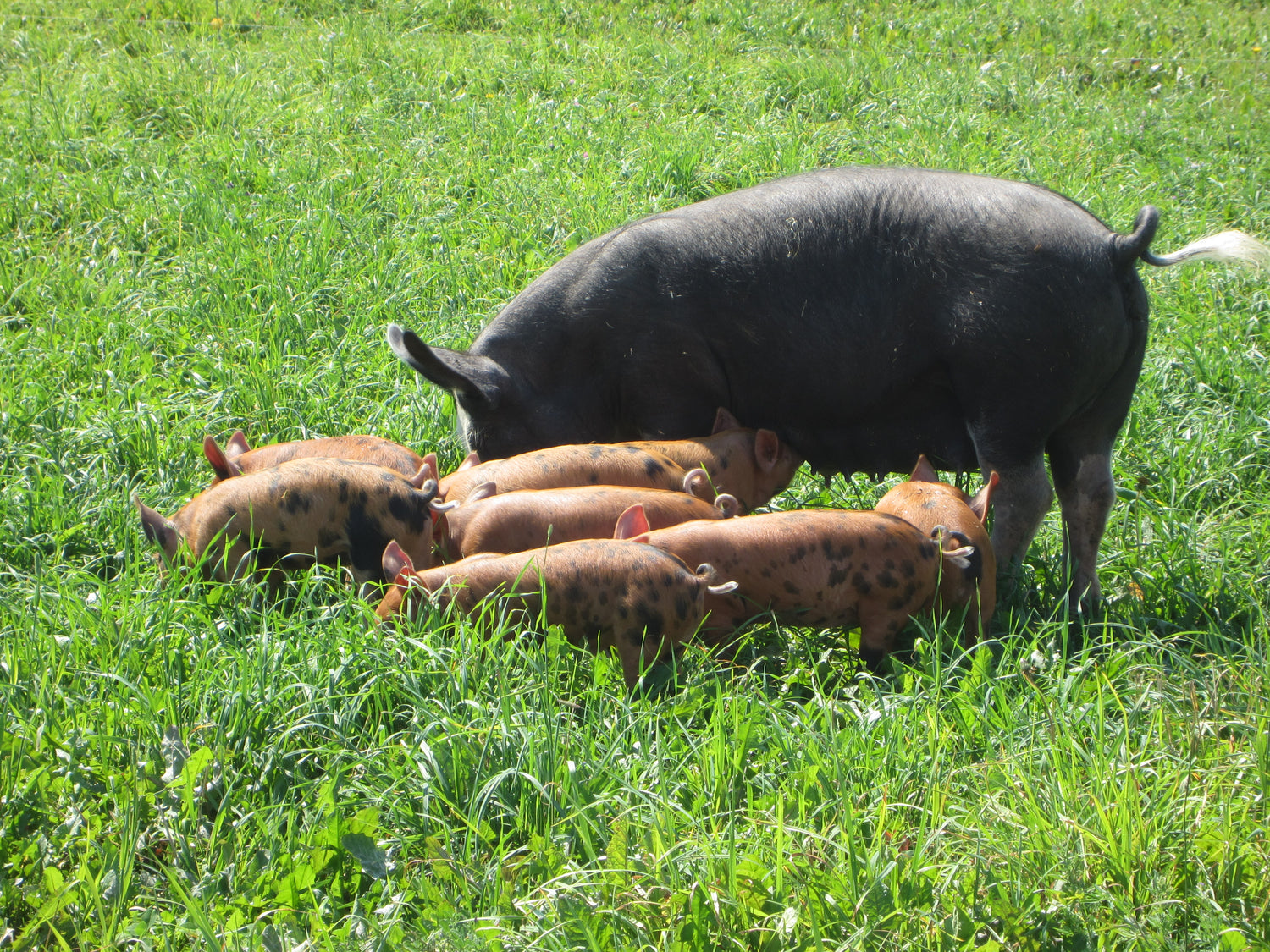-
Health for the Animals
Pigs on pasture are free to move around and root for food which is their natural behaviour. They are also provided with a shelter where they can have shade or be out of the elements. They have variety in their diet through insects, roots and plants. They are not crowded or confined, reducing stress and eliminating the need for antibiotics.
-
Health for the Environment
Raising animals on pasture requires less fossil fuel usage than confined feeding operations as the animals do their own harvesting and fertilizing. The pasture they are raised on does an excellent job of harvesting solar energy and holding onto top soil and moisture year round.
-
Health for You and Me
Pork raised on pasture is richer in micronutrients, especially fat soluble vitamins E and D.
Like beef, it also has high amounts of vitamin B12, zinc and selenium.
A pastured pork’s omega-6 to omega-3 ratio is also lower. This means lower chronic inflammation which can lead to certain conditions and diseases.
How we Raise our Pigs
After growing up on a conventional pig farm, Dave was sure for many years that he did not want to add pigs to our farm. However in 2011 we decided to get a couple of piglets and pasture them over the summer. Dave soon realized how different it was raising pigs on pasture and really enjoyed seeing them in their natural environment.
We now have four sows and raise their young. We prefer the older "heritage" breeds like Tamworth and Berkshire as they do better with the sun (don't get sun burned) and with rooting and grazing.
Patured Pork FAQ's
What does "pastured pork" mean?
Pastured pork means the pig is raised on a pasture where they are free to roam and feed. As pigs cannot get all of their nutritional requirements from grass, like cattle can, they are also supplemented with grain or other feed. They have shelters when on pasture to be out of the elements and are housed in barns for the winter months.
Is our pastured pork organic?
Our pastured pork meets organic standards. Our pigs, nor their food, have been exposed to herbicides, pesticides, other chemicals, hormones, or antibiotics.
Pigs graze and get part of their diet from foraging. We also supplement their diet with grains we grow ourselves or have purchased through certified organic suppliers.
Why do you never see "grassfed pork"?
Pigs cannot survive on grass alone, by nature they are omnivores and need some grain in their diet. They are only able to partially use the energy and nutrition from grasses.
The term grass-fed is more commonly associated with ruminants, like cows and goats. These are animals that have stomachs designed to break down cellulose of which grasses are made of, and take all their nutritional and energy needs from it.
What do pastured pigs eat?
Pastured pigs feed on grass, roots, insects, vegetables, fruits and grains. Our pigs receive feed that we mill here on our farm that includes a blend of oats, wheat and peas along with high quality minerals.
What is heritage breed pork?
Heritage breed pork comes from older breeds of pigs that are known for their superior traits such as great marbling and flavour.

